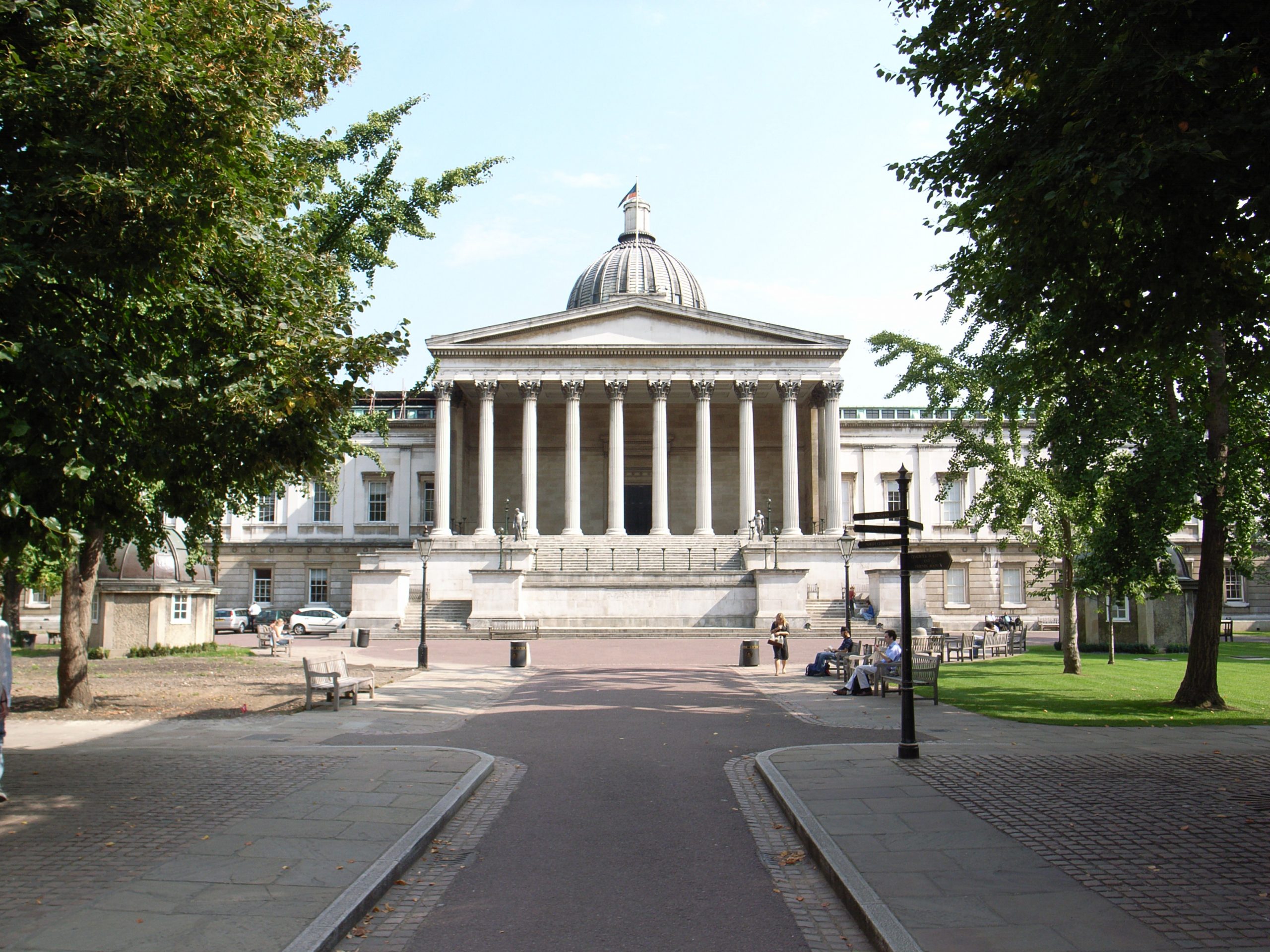University College London (UCL)
University College London (UCL) is located in central London. REQUEST INFORMATION
KEY INFORMATION:
It is a constituent college of the federal University of London. London has a population of 8.3 million (or over 13 million in the wider metropolitan region). The nearest major airport is London City Airport which offers flights many main European destinations. London Heathrow Airport is easily accessible via the tube system, taking approximately 45 minutes.



UG 15500
PG 13000



Six steps to University College London (UCL)
Our method to your success
FREE CONSULTATION MEETING
REPORT & INSTITUTION SHORTLIST
APPLY & RECEIVE AN OFFER
WOO HOO! YOUR OFFER IS ACCEPTED
ARRIVAL & POST ARRIVAL SUPPORT
WE ARE WITH YOU EVERY STEP OF THE WAY
LOCATION:
London is well served by underground and bus system and its major rail and coach stations offer connections to the rest of the UK as well as to France and Brussels via the Eurostar train from London St Pancras station. The lowest average temperature in and around London is 3 degrees in January. The highest average temperature is 22.5 degrees in July.
REQUEST INFORMATION..

Request Information - University Courses
HISTORY:
University College London (UCL) was founded in 1826 and was the first London university, at the time, only 2 other universities existed in England, Oxford and Cambridge. In 1828 UCL established the first academic departments in Chemistry, English, German and Italian. In 1833 UCL appointed England’s first Geography professor who was also secretary of the newly established Royal Geographical association. University College hospital was added in 1837. In 1841 the first chair of civil engineering was established at the university. work was started on building UCL Slade school of fine Art in 1870 and in 1878 UCL was the first university in England to allow entry to women on an equal terms with men.UCL’s partner hospital make a major impact on the lives of people living in the capital, handling 1.2 million hospital admissions and 1.7 first outpatient appointments in 2012.
LOCATION:
The main UCL Bloomsbury campus is centrally located and most of the main university buildings are on this central campus, near to Euston mainline station.Some of the medical studies buildings are further afield, such as the Royal Free hospital which is in Hampstead, about 3.5 miles away.Many of UCL’s halls of residence are near the Bloomsbury campus, some are located in UCL’s large residential campus in Camden town, 2 miles away.The main outdoor sports facilities are 18 miles away near St Albans.
RANKING:
University College London (UCL) is ranked 16th in the Times Higher Education rankings, it is also ranked 16th in the Shanghai Jiao Tong rankings. UCL is also a member of the Russell Group of universities.UCL is ranked 65th in the National Student Survey Satisfaction rankings.
INTERNATIONAL:
There are over 12,000 international students at UCL coming from over 130 different countries, representing over 40% of all students.
SIZE:
The total student population of UCL is just under 29,000 of which over 15,500 are undergraduates and over 13,000 are postgraduate.
EMPLOYMENT:
92.6% of UCL’s graduates enter directly into work, further study or training within 6 months of graduation (source:HESA). A breakdown of post graduation employment by course, showing the split into professional/managerial positions, rather than general employment figures, is available from Unistats an independent source of university data. For more information, please visit the REF Information page.
FACILITIES:
UCL main buildings are clustered around Bloomsbury in central London. As well as being close to the British Library and the British museum, UCL has a range of museums and collections of its own including; Art Museum, Grant museum of zoology, Petrie museum of Egyptian archaeology and numerous other Collections.The university has its own 500 plus seater theatre, the Bloomsbury Theatre.Sports facilities include Bloomsbury fitness, which offers a 7 days per week programme of exercise classes.UCL student union UCLU runs over 200 clubs and societies and has 10 full time elected officers to run the student union’s activities.UCL’s main outdoor sports facilities-Shenley sports ground is about 18 miles away near St Albans. Coaches are organised to take teams to home matches at the ground.
ACCOMMODATION:
UCL guarantees all first year undergraduates a place in university halls of residence. UCL offers both catered and self catering accommodation.UCL self catering options are in large student houses with shared bathroom and kitchens. There are over 15 of these large houses and several have over 200 rooms. The lowest price for a single room with shared bathroom and kitchen facilities is £200.69 per week.Ramsey Hall, the largest Hall, caters for over 450 students and is 5 minutes walk from the UCL campus. For Evans Halls is 25-30 minutes walk from the main campus. An example price for a single occupancy room with shared bathroom and kitchen facilities is £231.21 per week.In addition to the above, UCL students have access to the intercollegiate halls of residence owned by London University. These are situated in a variety of locations around London and offer mainly catered accommodation.
COST:
International undergraduate tuition fee examples:
International undergraduate, full time tuition fees start at £21,600 for most Education programmes, £23,300-£31,200 for most Arts, Humanities and Social Science subjects, and £28,500 for most Life Science courses. Medicine - £36,900
SUBJECT AREAS:
REF (Research Excellence Framework) was an independent government review conducted into the quality of research at UK universities and published in December 2014. This information highlights subjects of specialism within each university. We have listed all subject areas where at least 60% of the research conducted in these specific fields has been graded 3 or 4 stars. (4 stars being the highest ranking REF award). For more information, please visit the REF Information page.
ONLINE COURSES:
UCL offers a range of free and short online courses for professional development, via its UCLeXtend programme. Many subjects have courses, including Arts, Humanities, Social Sciences, Education, Business, Law, and more.A full list can be found here: https://www.ucl.ac.uk/short-courses/online-courses?collection=drupal-push-short-courses-short_course&meta_UclDeliveryFormat=%22Online%22&f.Course+types%7CUclCourseType=Professional+development&sort=adate
LIFE AT University College London (UCL)
We have been helping overseas students gain entrance to University College London (UCL) for a number of years now, progressing to high profile careers in the UK. Find out more about this school below.
Review
Coming Soon
 LOOKING FOR AN ONLINE COURSE?
Our team can help you find a relevant course for your study.
BOOK A CALL
LOOKING FOR AN ONLINE COURSE?
Our team can help you find a relevant course for your study.
BOOK A CALL
DOWNLOAD YOUR FREE GUIDE TO A QUALITY UK EDUCATION
Sign up to our free Newsletter and you'll get a free copy of our guide to accessing a UK education to help you navigate the entire process.
REQUEST INFORMATION..
Get free instant access to exclusive content and join our monthly email guide
We’re with you every step of the way and will keep you updated on the latest UK education news. Find out more about joining.
